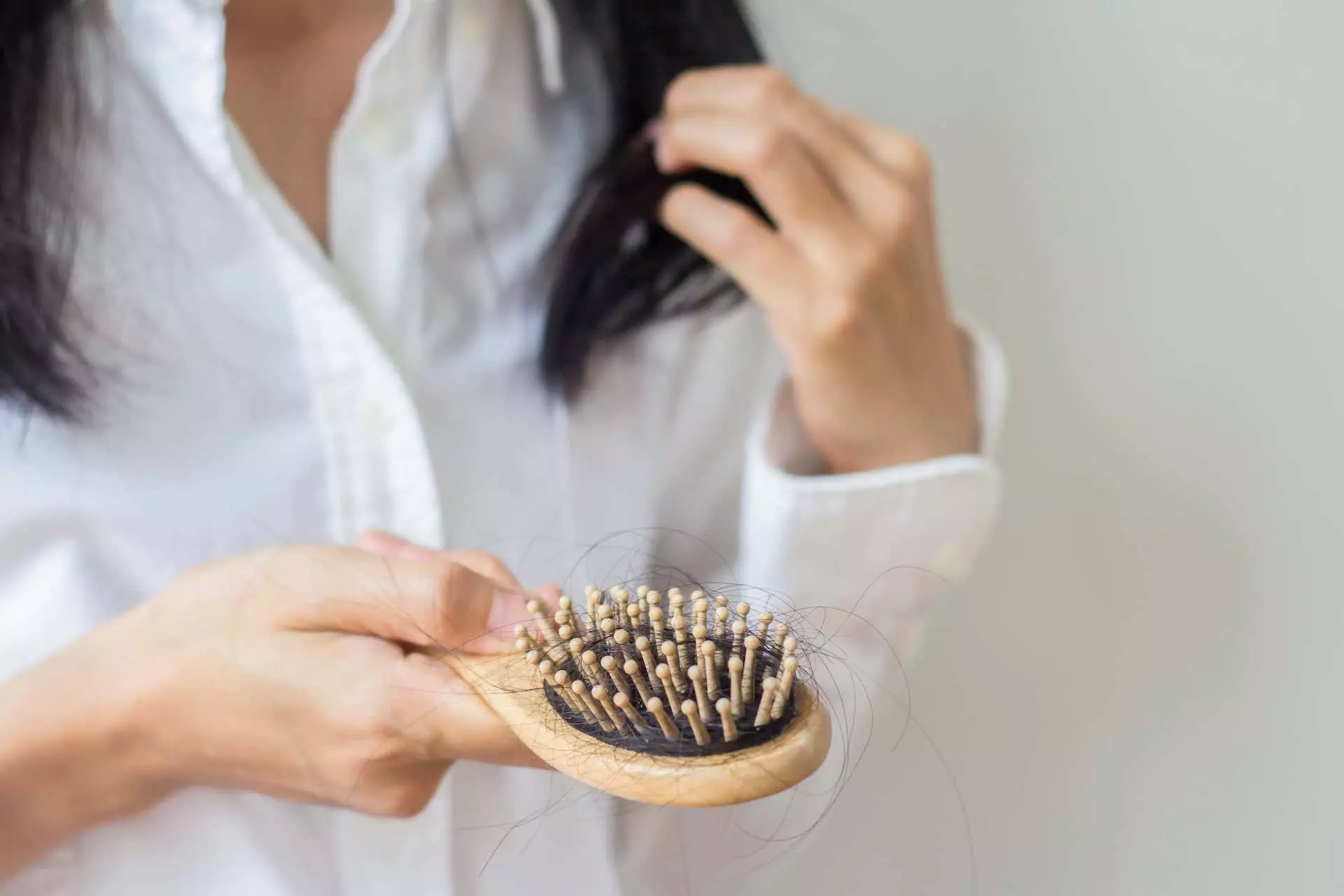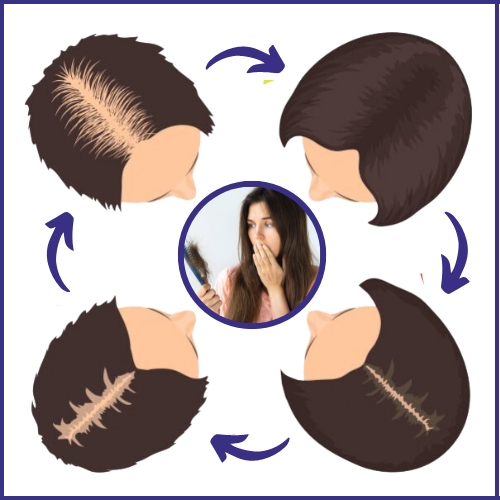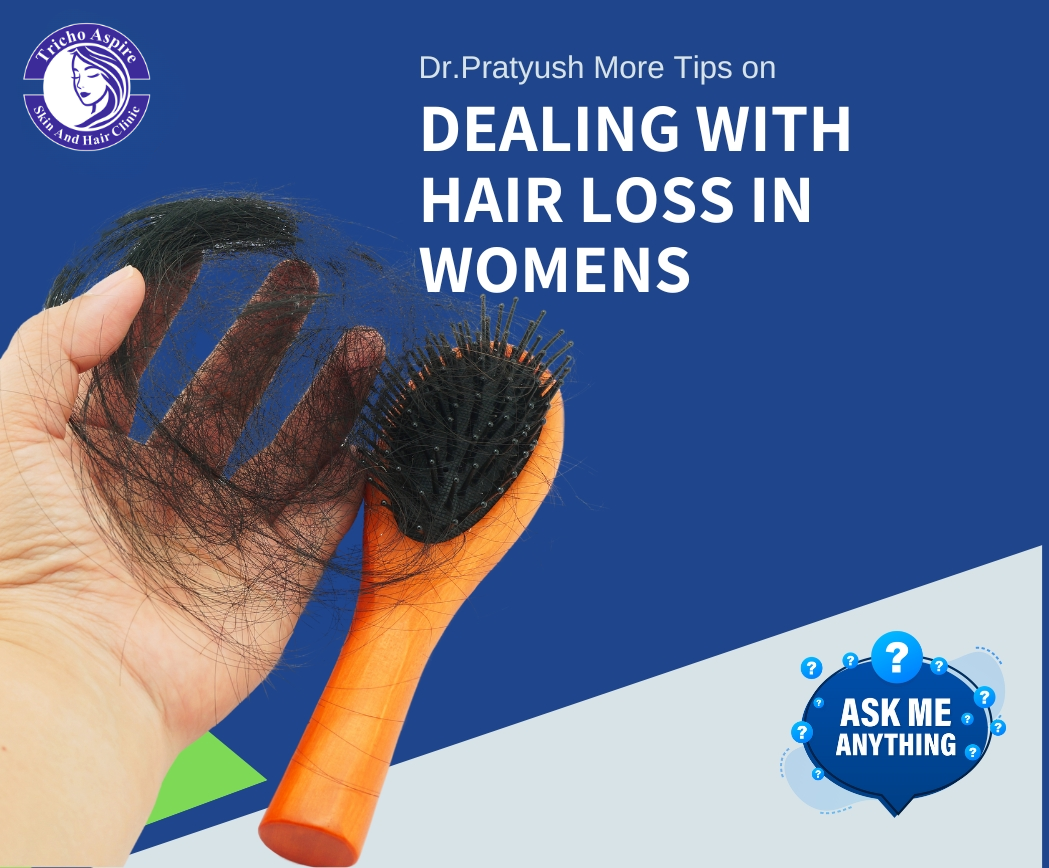
While hair loss affects both genders, it is more prevalent among men. Nevertheless, research reveals distinct gender variations in the repercussions of hair loss. Whether arising from chemotherapy or various forms of alopecia, the emotional and psychological toll of hair loss appears to be more pronounced among women, significantly influencing their quality of life.
About 55% of women experience some hair loss by the age of 70.
If your hair part appears to be widening, bald patches are becoming evident, or excessive shedding exceeds 100 strands daily, it’s imperative to promptly consult a dermatologist. Hair loss can stem from numerous factors. Timely intervention aids in mitigating loss and fostering enhanced hair care routines for improved thickness and vitality.
At Trichospire, Dr. Pratyush More comprehends the diverse challenges encountered by women dealing with hair loss, comprehends the underlying causes of alopecia, and specializes in offering tailored solutions and remedies to counteract the effects of hair loss effectively.

Hair Growth Cycle & Hair Loss
Typically, individuals experience a daily hair shedding range of 50 to 100 strands, applicable to both men and women. Hair shedding is an intrinsic facet of the hair’s growth cycle: certain strands naturally detach while others remain firmly rooted. Yet, disruptions to this innate equilibrium can lead to heightened hair loss, ultimately manifesting as alopecia or excessive shedding.
Hair goes through three phases of growth
- The anagen phase (growing phase) – lasts between two to eight years. About 85-90% of the hair on our head is in anagen phase.
- The catagen phase (transition phase) – for two to three weeks, hair follicles shrink.
- The telogen phase (resting phase) – takes about two to four months, at the end of which, the hair falls out.
Scalp hair boasts an extensive anagen phase, which can endure for up to six years or even longer. Conversely, finer hairs such as eyelashes, arm and leg hair, and eyebrows undergo a briefer anagen phase.

Types Of Hair Loss In Women
- Anagen Effluvium – caused by medications that poison a growing hair follicle, such as in the case of chemotherapy.
- Telogen Effluvium – caused by an increased number of hair follicles reaching the falling out stage, which is the telogen phase.
- Androgenetic alopecia/female pattern alopecia/female pattern hair loss (FPHL)/baldness – the most common type of hair loss in women, where the hair thins over the top of the head and on the sides.

Don’t wait to consult a dermatologist. The sooner you get treatment, the more effective it will be.
Hair Loss Is Typically Seen In
- Women over 40 years of age
- Women undergoing chemotherapy or under specific medications
- Women with vitamin deficiency
- Women who follow restrictive diets or have lost weight rapidly
- Women who have a family history of hair loss
- Post-partum women
- Menopausal women
- Women who wear their hair in tight styles that pull the hair, like tight ponytails and braids
- Women who have used harsh chemicals on their hair
Dr. Pratyush More’s Tips For Dealing With Hair Loss In Women
- I understand that hair loss is a difficult experience for women. While it may not be always possible to prevent hair loss, there are many things you can do to ensure your hair and scalp stay in good health and hair loss is deterred. If you are already experiencing hair loss, here are some things you can do.
- To begin with, talk to your hairstylist about choosing the right type of hair treatments. Be it colour or cut, choose styles that add volume to your hair and make it look fuller.
- Massage your scalp when you are shampooing your hair, or just about anytime you are free. This helps stimulate blood flow to the scalp and hair follicles.
- Choose the right kind of shampoo for your hair. Ideally, look for a shampoo that adds volume without using sulfate detergents. Hair products that add volume to your hair can be used, but don’t use them in excess.

Consult Now
📞 Consultation With Our Doctor
Dr. Pratyush More is a board certified Dermatologist and is trained under Dr. Alex Ginzburg from Israel in hair loss treatment & hair transplant.
